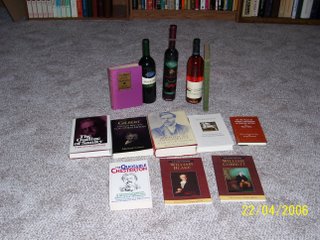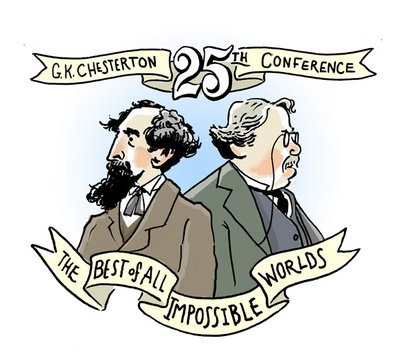FROM G.K.'s WEEKLY A HUNDRED YEARS AGO
[So many papers have printed with legitimate pride an extract from their issue of the previous century that we cannot consent to begin publication without equipping ourselves with so normal a feature of journalism; and our first issue seems the most appropriate moment for this slightly sentimental retrospect. After all, everybody seems to have a centenary these days without any particular difficulty. We are all centenarians now.]
March 21, 1825. -- Nearly ten years have passed since that glorious afternoon in summer, when Wellington and Blucher met and cemented an eternal peace between Prussia and England. Hopes of such a permanent peace, held out by the Holy Alliance, have not been contradicted by any great convulsion; and it seems probable that the conflict that ended at Waterloo may prove to be, in the witty phrase of an aged Russian diplomatist at the Council of Vienna, "the war that will end war." The anxious considerations that now weigh down a patriotic heart relate to the conditions of the country itself, so often forgotten in the glow of patriotism. That ingenious person, Mr. Bentham, delights to demonstrate that men only pursue their own interest in supporting an ordered society; in which case there would seem to be something highly and dangerously disinterested about the conduct of the landlords who set man-traps and tenants who burn hay-ricks. We have never joined in the universal invective against Mr. Cobbett, many of whose strictures seem to us to reflect credit in his head as well as in his heart; but we cannot but think him guilty of an exaggeration sometimes degenerating into enthusiasm (like that of the Methodists whom he loves to castigate) when he attributes so much of the evil to the prevalence of paper money. We allow for his rhetorical figures and highly coloured style; but there are conceits that appear incredible even when treated as tropes; and sometimes, in reading Mr. Cobbett, one would really imagine that a hundred years hence such a thing as a gold piece would never be seen in England; and that anyone dealing in some modest sum like ten shillings would solemnly present his neighbour with a piece of paper! The best students of political economy assure us that free competition, unhampered by any State interference, will soon find for every man the work for which he is most suited. But even the assurance of the whole population, in the year 1925, being in regular employment under merchants whose businesses will show a continually increasing security and prosperity, does not altogether reconcile us to the disappearance of the English yeoman and the systematic destruction of commons and rights of way. We are sorry to have nothing to oppose to predictions so solid and authoritative, except these sentimental regrets and these formless forebodings.
Oh, Gilbert. You do so love to have us on.


